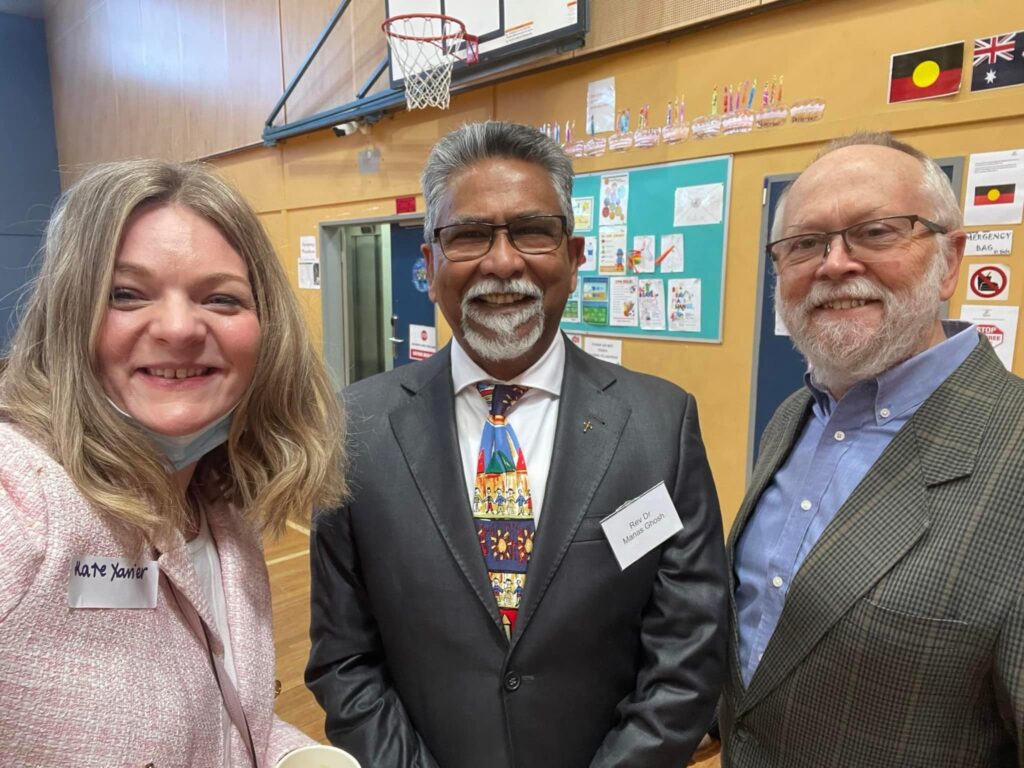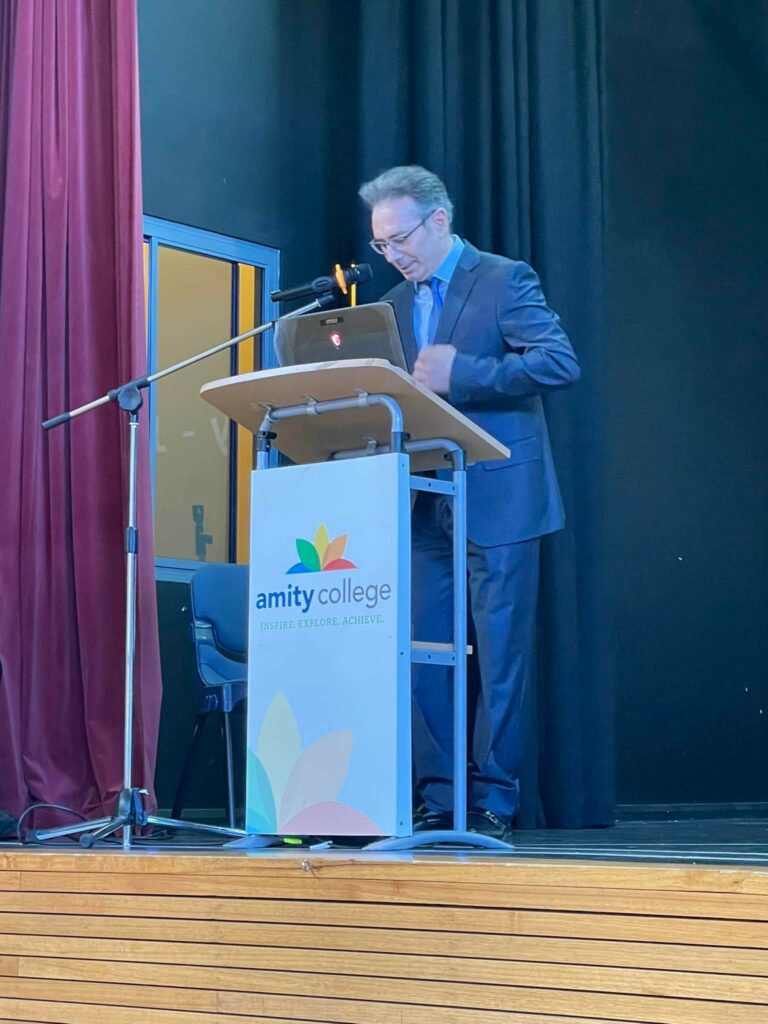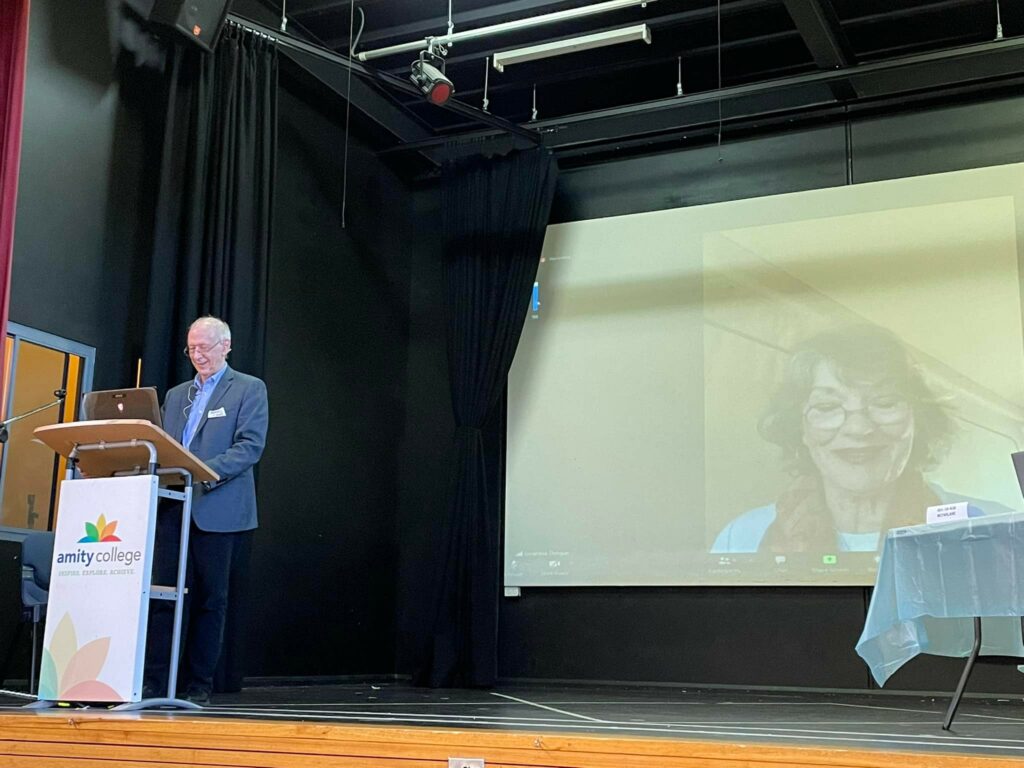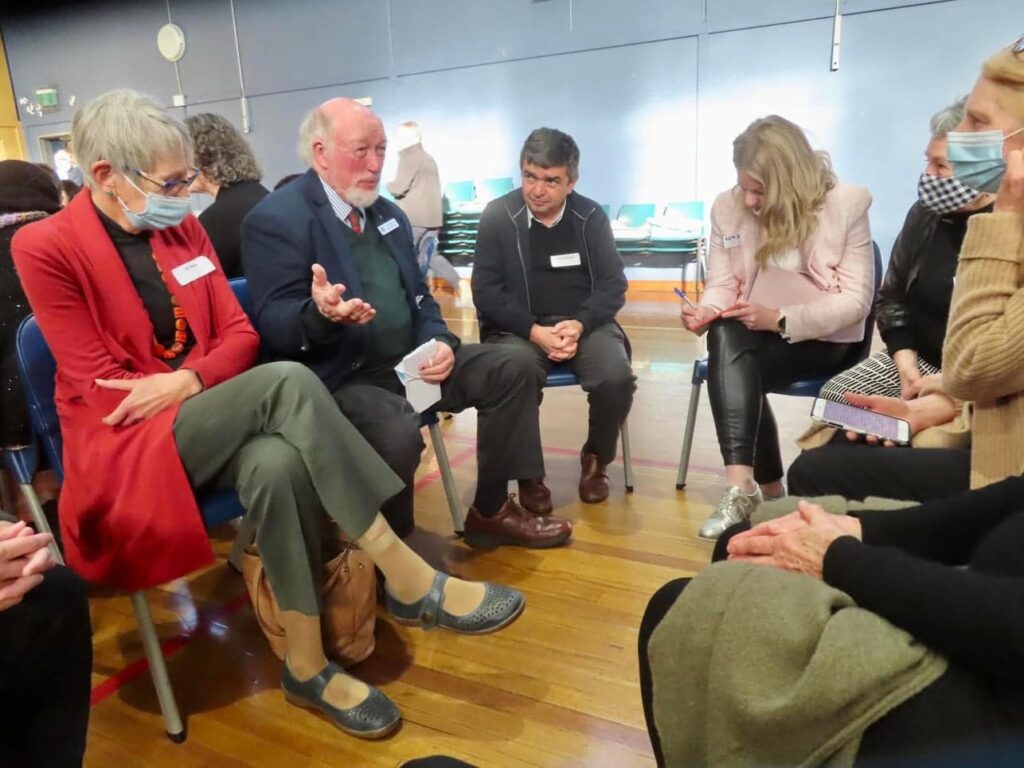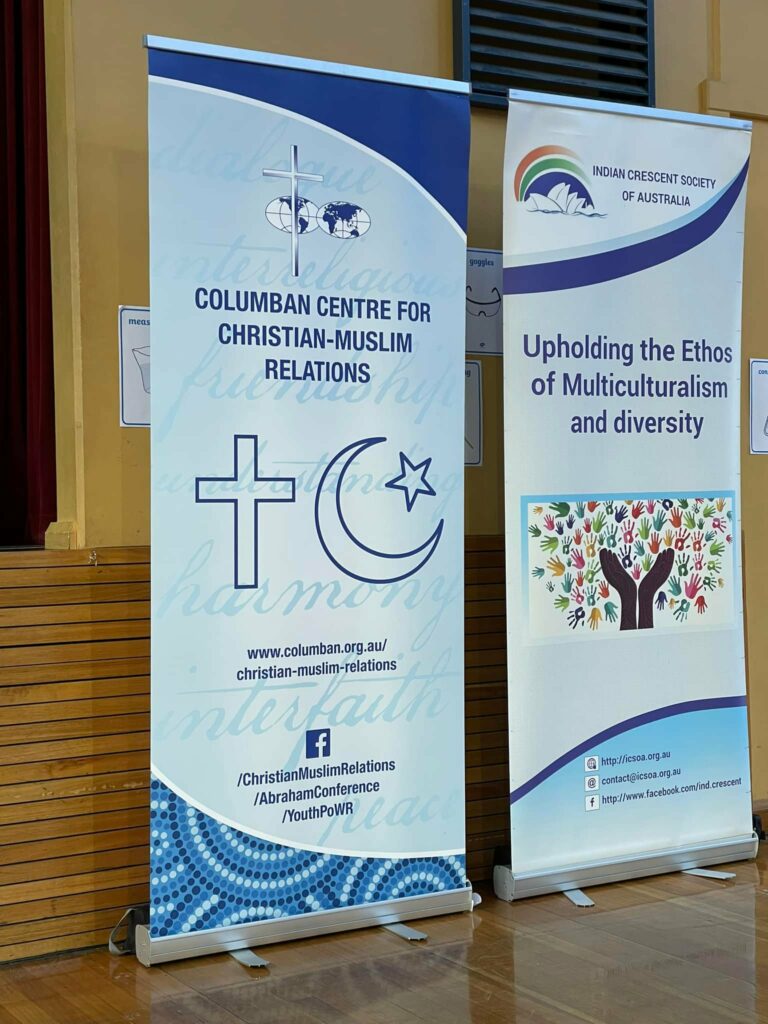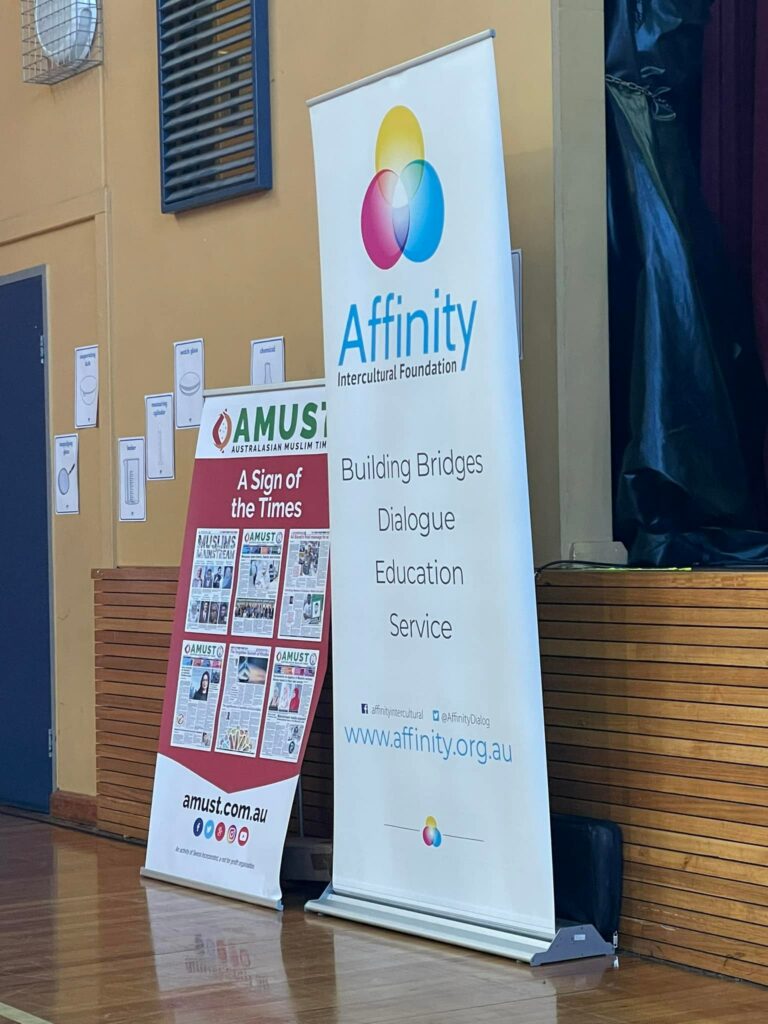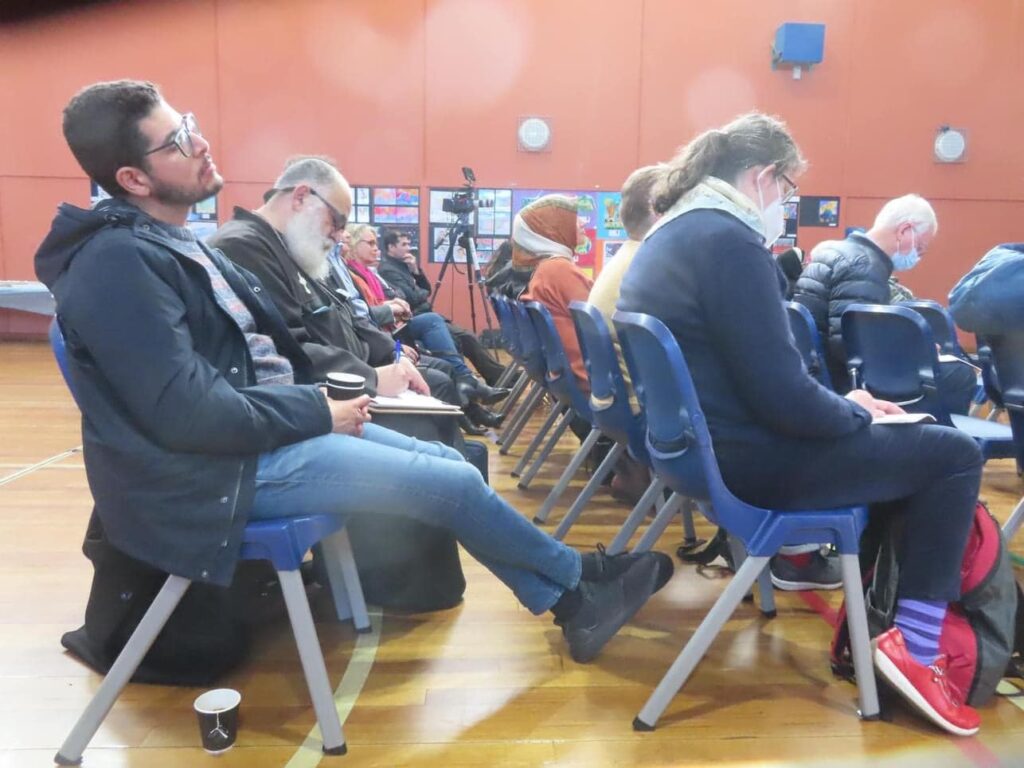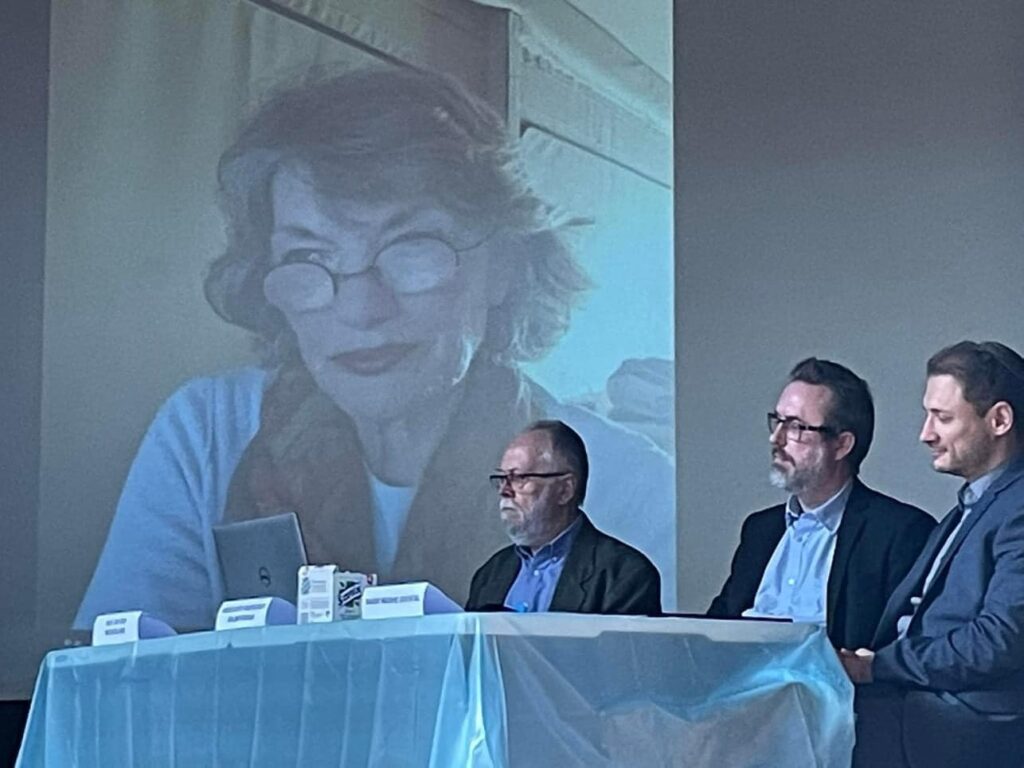Recovering faith in Faith at the Abraham Conference
August 17, 2022
written by Rev Dr Rob McFarlane, Presbytery Ministry Leader, Parramatta Nepean Presbytery
“Religion for the 21st Century: Recovering faith in Faith”
Abraham Conference, Sunday 14 August, 2022
It was a joy to have the annual Abrahamic Conference back face-to-face for the first time since 2019. While the focus of the conference is a topic, relationships created and renewed over food and drink are just as important in weaving our social and religious fabric.
The afternoon began with an engaging conversation between ABC veterans, Geraldine Doogue and John Cleary. John’s role was to draw out Geraldine for her reflections on her own life as a journo in the religious space against the background of declining organised religion in Australia. Some themes that emerged included:
- What factors within our institutions have contributed to this decline?
- Does religion in general have a contribution to make in public life in Australia today?
- How might our various faith traditions speak to our existential climate threat?
- What riches are there in our traditions of spirituality that offer might offer people something in their contemporary yearning?
It was a privilege to be on the panel responding to this conversation, along with Rabbi Moshe Givental (North Shore Temple Emanual) and Assoc. Prof. Salim Farrar (University of Sydney Law School).
One area where I was challenged to grow was in reflecting on our relationship as humans of faith with the creation. While Prof Farrar and I were happy to speak of “stewardship”, Rabbi Givental challenged us to think more of kinship. I brought several perspectives to the gathering myself.
For civil society, my big interest is in public ethics, especially institutional ethics committees. This is one of the last spaces where there is a mandated invitation to “ministers of religion” under National Health & Medical Research Council (NH&MRC) requirements. In response to Geraldine Doogue’s reflections on how she has grown to see that it is important to know who you and what your roots are in journalism, I shared my experience on hospital ethics committees over several decades.
There is a myth that there can be value-free secular ethics. A pluralist context doesn’t require us to have no values, but to name those humbly and clearly. For a long time I attended ethics committees from a lowest-common-denominator approach. Reflecting on this, I once had a chat over conference drinkies with the theologian Miroslav Volf. Prof Volf advised me to state clearly where I was coming from in any discussion. At the next meeting I attended we were discussing birth surrogacy. This is often seen from a rights perspective: my strong desire to have a child constitutes a right which society must meet. I said, hopefully clearly and humbly, that the Biblical tradition that informs me has a big focus on the rights of widows, orphans and refugees, so that I approach this issue with the question of who is most vulnerable in this situation. The most vulnerable have an ethical privilege for me. People took this on-board, and it changed the outcome to having greater safeguards for children conceived and parented this way. Curiously, this also encouraged a number of members of the committee to share, either privately or publicly, how their faith traditions informed their thinking.
Around the question of how religions traditions have contributed to their own decline, I became pretty energised. I said, from the church’s perspective, that we are even needing to ask this is half the problem. Have we not been paying attention? Can we not “read the (national) room”? So soon after the Royal Commission that revealed the evil covered up in the heart of our institutions, the majority of Australian churches chose the marriage plebiscite as THE issue to destroy what shreds of respect we may still have had in society. Regardless of one’s views of marriage – noting the interfaith space in which we gathered – was THIS the issue to self-destruct over?
Of course, long before the Royal Commission and the Plebiscite, Christian faith had lost the capacity to leverage people’s fear of hell by selling them an account of their own sinfulness, but many persisted. The opportunity for all our faith traditions now is to reach into what it is that we do best: offer insights into purpose and meaning, and invite people into practices of spirituality which we ourselves have neglected.
Drawing these threads together, the religious traditions in which we live do have a positive gift to offer in the 21st century. We can help people recover faith in Faith. However, the demand that we have a seat at the table and the command that others should live as we tell them are the very things that have contributed to our decline. Our traditions have within them the practice of confession; this is the posture from which we are called to speak. Then, we can offer the riches that we ourselves have neglected around the nature of purpose, creation and spiritual practice.
Photos thanks to Rev Dr Rob McFarlane and Parramatta Nepean Presbytery

